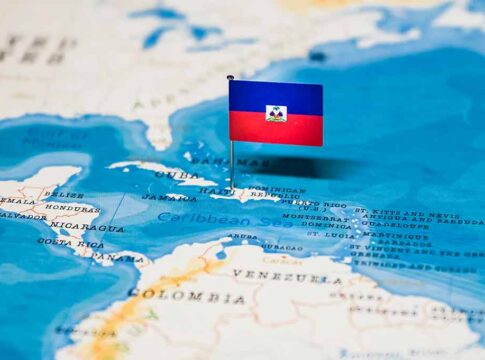A massacre in Cité Soleil led by the notorious warlord Monel “Mikano” Felix marks a harrowing chapter in Haiti’s struggle against violence. Felix called for the killing of 180 victims due to witchcraft accusations. Why do Haiti’s government efforts to counter gang dominance continue to falter?
The Tragedy Unfolds in Cité Soleil
In the volatile neighborhood of Cité Soleil in Port-au-Prince, an event unfolded that exacerbated the ongoing crisis in Haiti. Gang leader Monel “Mikano” Felix, suspecting witchcraft was behind his child’s illness and death, ordered the massacre of around 180 individuals, primarily seniors. Witnesses recounted horrifying scenes of bodies being mutilated and then burned in the streets, a show of brutality that also claimed the lives of younger individuals who attempted to defend the elderly.
This violent act is rooted in deep-seated fears and superstitions prevalent in Haitian society, further aggravated by political instability and the firm grip of gangs over most regions. Felix’s actions not only highlight these issues but also underscore the challenges facing government authorities, who struggle to regain control amidst rampant violence.
More than 180 people were killed in Haiti as a warlord ordered the slaying of elderly slum residents he suspected of giving his son a severe illness through witchcraft, said the U.N. and rights groups https://t.co/dvm7IJrrTl
— The Wall Street Journal (@WSJ) December 9, 2024
Implications for a Nation on Edge
The massacre in Cité Soleil is part of a broader pattern of violence in Haiti, where gang influence is a significant concern. Felix’s group alone is believed to include around 300 members, contributing to a year where the country has seen nearly 5,000 killed. The Haitian government, weakened by infighting, is unable to curb the power of armed gangs, leaving the population vulnerable to further attacks. Haiti has repeatedly called for international security support, but assistance remains inadequate due to limited UN resources.
“Mobilize all forces to track down and annihilate,” said the Haitian prime minister’s office.
As internal solutions prove elusive, local leaders are pressing for a robust UN peacekeeping presence. However, geopolitical challenges arise, as permanent UN Security Council members, China and Russia, oppose such interventions. The persistent call for decisive action reflects Human Rights Watch’s grim assessment of Haiti, emphasizing the dire need to address both the fear of violence and the lack of necessities amid a humanitarian disaster.
BREAKING: At least 110 people were killed over the weekend in Haiti's Cite Soleil slum after a gang leader targeted elderly individuals he believed were responsible for his child's illness through witchcraft. pic.twitter.com/iCVINIfqy9
— The General (@GeneralMCNews) December 9, 2024
Looking Ahead: A Path Forward
In response to these challenges, the Haitian government has called for all available forces to counteract the gang’s stranglehold. Yet, without sufficient international backing, these efforts may falter. The situation demands a coordinated approach, drawing on global partnerships willing to support Haiti before conditions further deteriorate. The international community, recognizing the impact on regional stability, must assist Haiti as it seeks to stem the tide of violence and restore order. Such support is vital for Haiti to move beyond the current climate of fear and uncertainty.
Lessons from the Cité Soleil massacre must guide future strategies, focusing on security, institution-building, and socio-economic rehabilitation. The need for immediate, effective responses in partnership with trusted international allies cannot be overstated in ensuring Haiti’s path toward stability and peace.


